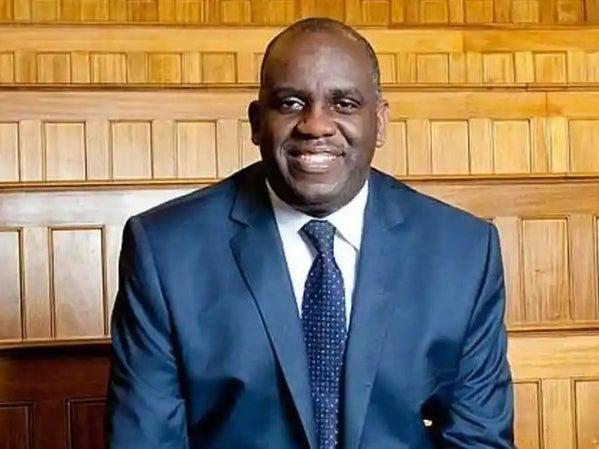Government unveils plan to tackle race inequality based on discredited Sewell report
Labour Party says plan ‘cannot be relied upon’ to address racial disparities.
The government has set out an action plan to tackle inequality based on recommendations from a commission that concluded there was no systemic racism in Britain.
The Inclusion Britain strategy, published on Wednesday evening, was developed in response to a controversial report by the Commission on Race and Ethnic Disparities (CRED) last year.
Lack of opportunity should not be seen “solely through the prism of ethnic minority disadvantage”, said equalities minister Kemi Badenoch in an introduction to the 97-page plan which aims to “counter the pessimism that often prevails in debates about race in the UK”.
Referring to the CRED report, Ms Badenoch said: “Some of the report’s conclusions were relatively uncontroversial. Others challenged the lazy consensus.
“It lived up to the maxim of the author and economist Thomas Sowell that ‘when you want to help people, you tell them the truth…When you want to help yourself, you tell them what they want to hear.’
“The evidence is free from politicisation or distortion, with findings presented in an unvarnished fashion.”
The commitments in the action plan include revamping the history curriculum for schoolchildren, a cash injection for school pupils who have fallen behind during the pandemic and clamping down on online racist abuse through new legislation.
Moreover, the Department for Education will invest up to £75m to deliver a state scholarship programme for students in higher education, and the government aims to improve maternal health outcomes for ethnic minority women, a disparity which experts have linked to systemic racism.
However, the action plan does not include introducing mandatory ethnicity pay gap reporting for businesses despite widespread calls for this from campaigners.
Responding to Ms Badenoch’s proposals, the Labour Party accused the minister of failing to “deliver meaningful action”.
Last year the CRED report concluded that racism is a “real force” but that Britain is no longer a country where the “system is deliberately rigged against ethnic minorities”.
It also criticised the “accusatory tone of much of the current rhetoric on race, and the pessimism about what has been and what more can be achieved”.
The government’s new strategy addresses each of its 24 recommendations grouped under three key themes identified by the commission – building trust, promoting fairness and creating agency.

CRED chairman Tony Sewell said: “This is a major step towards a fairer, more open and more inclusive society and, importantly, focuses on the practical actions that will improve people’s lives.
“We all should throw our weight behind this strategy so we can build a better society for all.”
Mr Sewell recently lost out on an honorary university degree from the University of Nottingham over his race report after the offer was withdrawn due to the controversy that’s surrounded him ever since.
Its findings were met with a backlash from politicians and equalities campaigners who accused the group of “cherry-picking data” and pushing “propaganda”, while the United Nations described it as “attempt to normalise white supremacy” and experts named in the report publicly expressed shock at their purported involvement.
The government will report back to parliament in a year on its progress in delivering its proposed actions.
TUC General Secretary Frances O’Grady said the government should “ignore Sewell and bring in ethnicity pay gap monitoring now.”
“The Commission had a real chance to recommend decisive action to stamp out this institutional racism. But instead, they denied the experiences of BME workers and were complacent about the UK’s progress towards being an anti-racist society,” she said.
“The government has accepted the recommendations of the Sewell report, which denies systemic and institutional racism, and which failed to recognise or propose action on the institutional racism experienced by BME workers in the workplace.
“The government should have rejected the report, and instead proposed real action on workplace equality.”
Taiwo Owatemi, Labour’s shadow women and equalities minister, said: “The Sewell report completely failed to identify or tackle the root causes of racial disparities.
“It obviously cannot be relied upon to address these disparities, and yet the government has unquestioningly accepted its findings.
“It’s disgraceful that we’ve had to wait almost a year for the government’s response – and worse still that it agrees with the original report’s denial of structural racism. Boris Johnson’s Conservatives have once again failed to deliver meaningful action. In doing so, they have let down black, Asian and ethnic minority communities.”
The Runnymede Trust welcomed any measures aimed at addressing racial and socio-economic disparities, but warned that the government must do more to accomplish that.
“We look forward to assessing the proposals in full, but note that these recommendations alone will not go far enough to address the scale of injustices facing Black and ethnic minority communities,” a spokesperson from the think-tank told The Independent.
“We must not forget how much Black and ethnic minority communities have suffered in the last two years as a result of Covid-19. Two years of government inaction later, we are concerned that these proposals often lack clear targets.”
The Runnymede Trust warned the government against “giving with one hand to ethnic minority communities and taking away with the other”, urging ministers to recognise the negative impact of the its own upcoming legislation on black and ethnic minority groups such as the Police Crimes Sentencing and Courts Bill and the proposed overhaul of the Human Rights Act.
Join our commenting forum
Join thought-provoking conversations, follow other Independent readers and see their replies
Comments


Bookmark popover
Removed from bookmarks